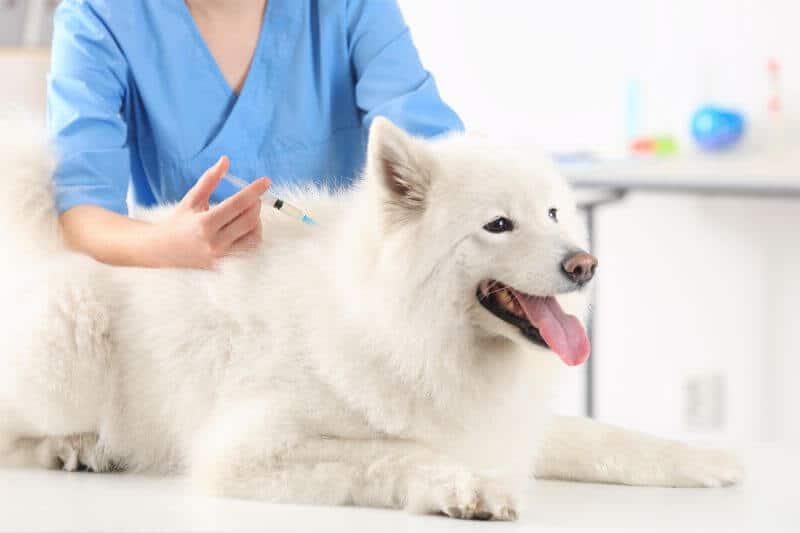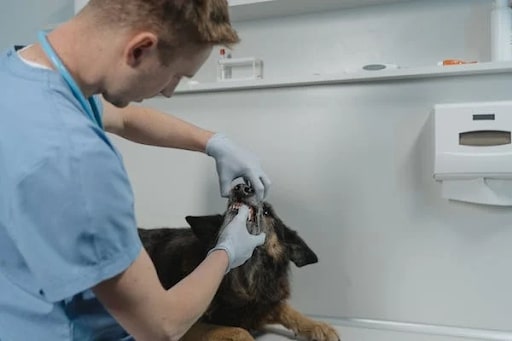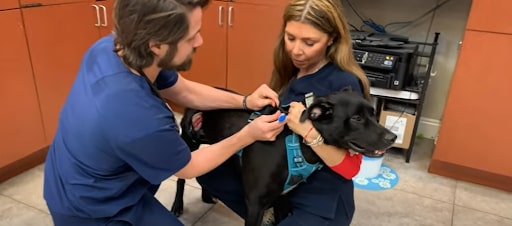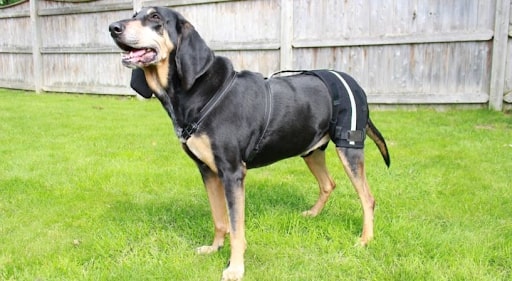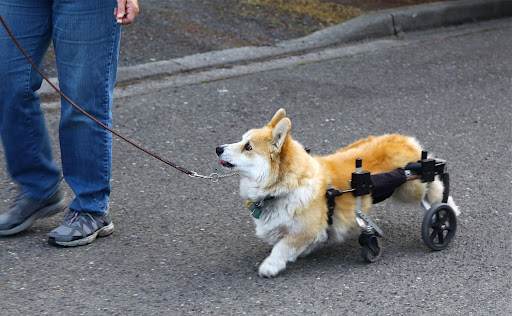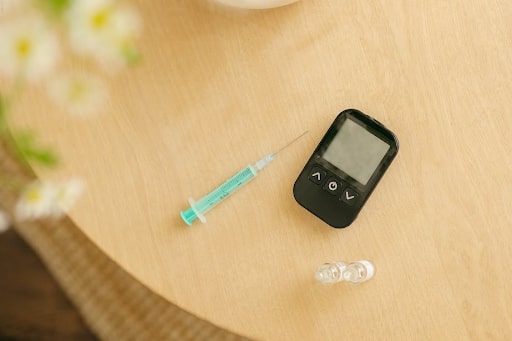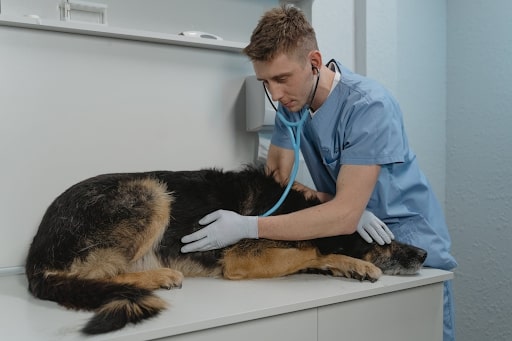A cataract is a cloudy area that develops in the eye’s lens. The clouding limits normal light transmission from the lens to the retina. As a result, cataracts can cause vision impairment (and pain if left untreated over time). Cataract surgery is often recommended to restore vision and improve the dog’s overall well-being.
In addition to improving the dog’s quality of life, cataract surgery may also be necessary to address underlying health issues causing cataracts. For example, diabetes is a common cause of cataracts in dogs, and managing diabetes may be necessary to prevent further cataract development.
The average cost of cataract surgery for dogs is between $2,700 to $4,000 per eye. However, the cost of cataract surgery for dogs can vary greatly based on factors such as:
- The type of surgery
- The dog’s size and weight
- The cataract’s severity
- The location of the veterinary clinic
The different types of cataract surgery for dogs, which include phacoemulsification, extracapsular cataract surgery, and intraocular lens (IOL) implantation, have different cost ranges. In addition, preoperative testing and postoperative care can also affect the overall cost of cataract surgery.
Key Takeaways
- The cost of cataract surgery for dogs can vary widely depending on factors such as the type of surgery, size and weight of the dog, severity of the cataract, and the location of the veterinary clinic.
- Each type of cataract surgery has a different cost range.
- Options such as pet insurance, Care Credit, and locating low-cost clinics can assist dog owners in reducing the expense of cataract surgery.
Factors Affecting Cataract Surgery Cost for Dogs
Several factors can impact the cost of cataract surgery for dogs. These factors include:
- Type of surgery: Several types of cataract surgery are available, including phacoemulsification, extracapsular cataract surgery, and intraocular lens (IOL) implantation. The cost of each surgical procedure can vary.
- Size and weight of the dog: Bigger dogs may require more anesthesia and longer operation durations, which might increase surgical costs.
- The severity of the cataract: The severity of the cataract can impact the complexity of the surgery and the amount of time and resources required, which affects the overall cost.
- Location of the veterinary clinic: The clinic’s location might impact the surgery’s price, with clinics in more expensive locations charging more for their services.
- Preoperative testing and postoperative care: The cost of cataract surgery includes preoperative testing, such as blood work or eye examinations, and postoperative care, such as prescriptions or follow-up visits. These additional costs may increase the total cost of the surgery.
Related: Cherry Eye Dog Surgery Cost, Treatment, and Care
Types of Cataract Surgery for Dogs
There are several types of cataract surgery available for dogs, each with its benefits and drawbacks. These include:
- Phacoemulsification
This is the most common type of cataract surgery. It uses ultrasound waves to break up the cloudy lens, which is then removed through a small incision. The lens is replaced with an artificial lens implant. This surgery has a shorter recovery period and fewer complications than other surgical procedures.
- Extracapsular Cataract Surgery
This type of surgery involves removing and replacing the entire lens with an artificial lens implant. This surgery is recommended for larger cataracts or when phacoemulsification is not possible. Recovery time is longer, and complications are more common compared to phacoemulsification.
- Intraocular Lens (IOL) Implantation
This involves the insertion of an artificial lens implant into the eye after removing the cataract. This surgery is normally recommended for dogs with a healthy retina and mild to moderate cataracts. Recovery time is similar to phacoemulsification.
Cost of Cataract Surgery for Dogs
The cost of cataract surgery for dogs varies depending on the type of surgery, the location of the veterinary clinic, and other factors mentioned earlier. Here is a general overview of the average cost and range of costs for each type of cataract surgery:
| Type of Surgery | Average cost per eye | Range of cost per eye |
| Phacoemulsification | $3500 | $2,700 to $4,000 |
| Extracapsular cataract surgery | $2700 | $1,500 to $4,000 |
| Intraocular lens (IOL) implantation | $2500 | $1,500 to $3,000 |
On average, it costs between $2,700 and $4,000 to fix a dog’s cataracts. This cost includes:
- Examinations
- Testing and diagnostics
- Surgery
- Post-surgery treatments
- Anesthesia
- Hospitalization
Even though the price is high, it is worth it. The long-term success rate for dog cataract surgery is between 85% and 90%. That means most dogs can see again at least a year after surgery and have normal intraocular pressure. There are possible problems, like retinal detachment or scarring, but they don’t happen very often.
Related: Luxated Patella of Dog – Surgery Cost
Location of Veterinary Clinic
The location of the veterinary clinic can affect the cost of cataract surgery for dogs. In general, clinics located in more expensive areas, such as urban or affluent areas, will often charge more than clinics in rural or low-income areas. This is due to the higher cost of living and overhead expenses in these areas.
Here are some examples of regional differences in cataract surgery cost:
- In urban areas such as New York City or Los Angeles, the cost of cataract surgery can range from $3,000 to $6,000.
- In more rural areas such as Montana or Wyoming, the cost of cataract surgery can range from $1,500 to $3,000.
Preoperative Testing and Postoperative Care
The cost of the tests that are done to determine if the dog is a good candidate for the surgery will add to the overall cost of the cataract surgery. Postoperative care, such as medications, follow-up appointments, and other care to ensure a successful recovery, will also add to the cost of the cataract surgery.
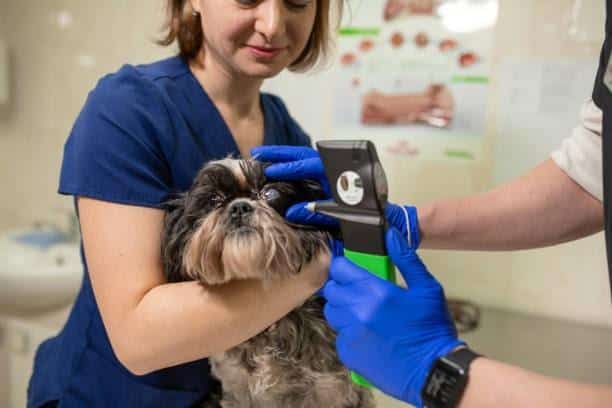
Preoperative Testing
Preoperative tests add to the surgery cost. But they are necessary to ensure the dog is healthy enough for anesthesia and surgery. These tests include:
- Blood work
- Urinalysis
- Electocardiogram (ECG)
- Eye examinations
Blood work, urinalysis, and an ECG can help find any hidden health problems that might make it hard for the dog to have surgery. An eye exam can also help determine how bad the cataract is, where it is, and how healthy the eye is overall.
These tests can help identify potential complications during surgery and ensure that the dog is a good candidate for surgery.
Postoperative Care
Postoperative care is very important for the dog’s recovery and long-term wellness. The dog may need medications, follow-up appointments, and other care to ensure a successful recovery. Pain medications, anti-inflammatory medications, and antibiotics may be prescribed to help manage pain and prevent infection.
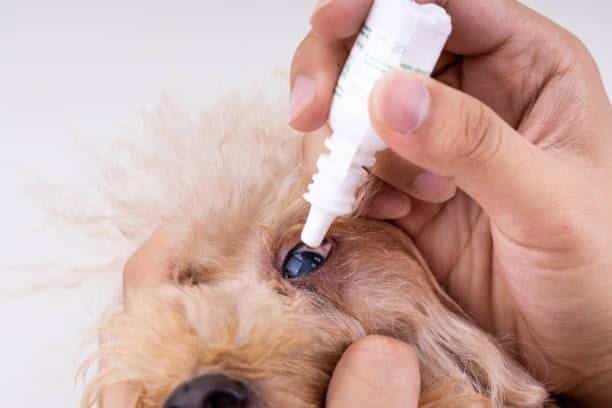
There will need to be follow-up appointments to check on the dog’s progress and make sure the eye is healing properly. Talk to the veterinarian about how much these extra services will cost.
Ways to Lower Cataract Surgery Costs for Dogs
If you are concerned about the cost of cataract surgery for your dog, here are several ways to lower the cost:
- Finding Low-Cost Clinics
Some veterinary clinics offer lower-cost cataract surgery, especially if they are located in more rural or low-income areas. You can also look for clinics that offer discounts or special promotions.
- Exploring Financing Options
Some veterinary clinics offer financing options that allow you to pay for the surgery over time. Alternatively, you can consider financing options through third-party providers such as CareCredit.
- Pet Insurance
Pet insurance can help cover the cost of cataract surgery and other medical expenses. The cost and coverage options can vary depending on the insurance provider and the plan you select. The best way to plan for your pet’s health throughout its life is to get pet health insurance. If you sign up when he is young, there will be far fewer preexisting conditions, giving you more coverage as long as you have an active policy.
Having pet insurance before the diagnosis can help cut unexpected costs for dog cataract surgery and many other pet health costs. It doesn’t cost as much as you think. But if you want that condition to be covered by pet insurance, you must have a plan in place before the diagnosis.
- CareCredit
CareCredit is a healthcare credit card that can be used to finance veterinary care – including cataract surgery for dogs. Care Credit offers different financing options, such as interest-free financing for a set period. That makes the cost of veterinary care more manageable for pet owners.
- Discussing Options With the Veterinarian
Some veterinary clinics may offer payment plans or financing options to help pet owners manage the expense of the procedure. In addition, veterinarians may be able to provide guidance on low-cost clinics or other resources for affordable cataract surgery.
During the consultation with the veterinarian, pet owners can ask about these options and work with the clinic to find a solution that works for them and their dog.
How Much Does Cataract Surgery for a Dog Cost FAQs
- What Are the Pros and Cons of Cataract Surgery for Dogs?
Here are some pros and cons of cataract surgery for dogs:
Pros
- Better vision: Dogs can see clearly and navigate their environment after cataract surgery.
- Increased quality of life: Dogs can play and exercise again with improved vision.
- Prevent Complications: Untreated cataracts can cause secondary infections and blindness. Cataract surgery prevents these issues.
Cons
- Anesthesia risk: Older dogs and those with health issues have anesthetic risks during surgery.
- Infection, inflammation, and retinal detachment are some of the rare complications of cataract surgery.
- Dogs undergoing cataract surgery require a period of recovery and may need to wear a protective cone or collar to prevent them from rubbing their eyes.
- Is Cataract Surgery for Dogs Worth It?
Yes, cataract surgery for dogs can be worth it in many cases. Cataracts can significantly affect a dog’s quality of life, causing vision loss and other health problems. Cataract surgery can restore a dog’s vision and improve its quality of life, allowing them to continue to enjoy activities they love, such as playing fetch, going for walks, and interacting with its owners.
- Can My Dog Live With Cataracts?
Yes, your dog can live with cataracts. However, the severity of cataracts and the impact on your dog’s vision will depend on various factors.
Cataracts are characterized by clouding of the eye’s lens, which can cause varying degrees of vision impairment. In some cases, mild cataracts may not significantly affect your dog’s vision or quality of life, and they can adapt to their reduced vision. However, more severe cataracts can cause significant vision loss and, if left untreated, can lead to complete blindness.
If your dog has cataracts, it is essential to have them evaluated by a veterinarian to determine the extent of cataracts and their impact on your dog’s vision.
- How Can I Get Rid of My Dog’s Cataracts Without Surgery?
Currently, the only effective treatment for cataracts in dogs is surgery. There is no known medical or non-surgical treatment that can remove or reverse cataracts in dogs.
Some products on the market claim to dissolve or reduce cataracts. But there is no scientific evidence to support these claims. In fact, using these products could be harmful to your dog’s eyes and potentially cause further damage.
Conclusion
Factors such as the type of surgery, the size, and weight of the dog, the severity of the cataract, the location of the veterinary clinic, and preoperative testing and postoperative care might affect the price of cataract surgery for dogs. Cataract surgery can be costly for dogs, but it is a crucial procedure that can improve their quality of life and prevent blindness.
As a result, it is essential to prioritize your dog’s health and evaluate all possibilities to make the procedure more reasonable. That may involve locating low-cost clinics, investigating funding options, or acquiring pet insurance or CareCredit. Investing in your dog’s health and well-being is vital, and the long-term benefits of cataract surgery can outweigh the costs. Consult with your local vet today to discuss the cost of your dog’s cataract surgery.


